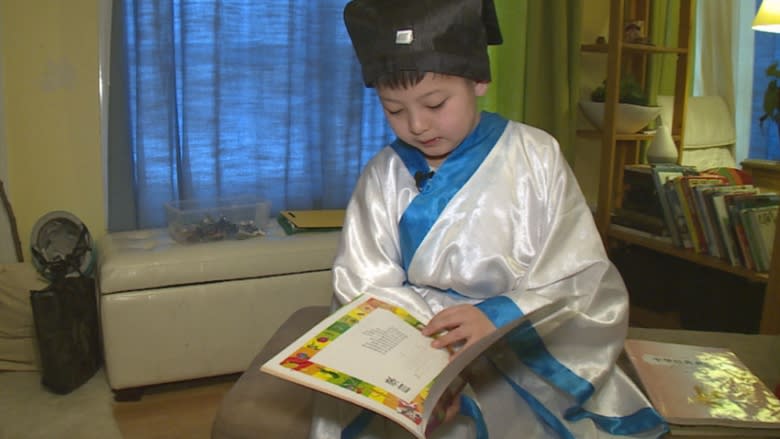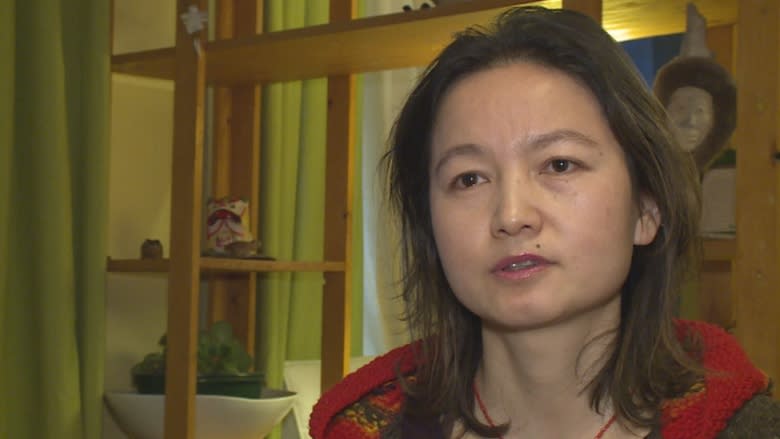8-year-old Yellowknifer learns ancient Chinese poetry
Today is Chinese New Year and as people around the world usher in the Year of the Monkey, they're also celebrating Chinese culture.
Two parents in Yellowknife are determined to pass on their Chinese culture and language to their Canadian-born son and they're doing it through stories and poems that are thousands of years old.
Ting Bai Liu, 8, loves Pokemon and Lego. He's also been reading ancient Chinese literature since he was three years old.
"I know that sounds a bit profound for a three-year-old," says his mother, Xiaoyi Yan. "Language is the key to open the door of the culture."
Living in an English-dominated world, Yan worried her son would miss that critical window for language development. She went online and found other Chinese families, living abroad, using ancient Chinese stories and poems to keep their children connected.
"Those classics are the anchors for Chinese literature," she said. "It was very difficult for him to learn at the beginning."
They started simply, reading poetry written for children 600 years ago. They started with five minutes a day.
"When I am teaching him, it's not just the sound," she said. "I use his finger and point, helping him to make connections between the sound and the character because characters are a completely different system than the sound itself.
"If I put a poem on the wall, he says 'Oh mum, I know this,' and he will tell me what that word is."
Now, they spend an hour a week reading works influenced by some of China's great philosophers.
"We learn things that people from thousands of years ago wrote," said Ting Bai.
"The poetry that I'm learning now tells about nature, everyday life or opposites. There's a lot of verses. Like 15 verses or something. I'm on the second verse."
Ting Bai said he finds the literature hard and his parents say they also find it difficult to teach as they grew up in an education system more focused on science and European ideas than ancient traditions, so both generations are learning.
"It's very profound sometimes," Yan said of the poetry. "The words just hit me — 'wow, I wish I had known that earlier.'"



